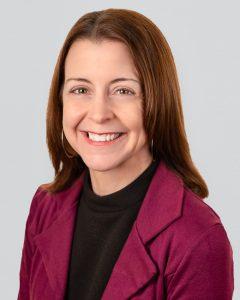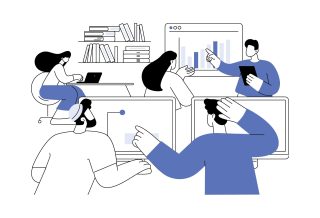FOCUS
What does personalized learning mean?
Experts weigh in
By Suzanne Bouffard
Categories: Collaboration, College- and career-ready standards, Learning communities, Learning designs, Personalization, Reaching all students, Resources, TechnologyAugust 2019
Vol. 40 No. 4
Read the remaining content with membership access. Join or log in below to continue.
Sed ut perspiciatis unde omnis iste natus error sit voluptatem accusantium doloremque laudantium, totam rem aperiam, eaque ipsa quae ab illo inventore veritatis et quasi architecto beatae vitae dicta sunt explicabo. Nemo enim ipsam voluptatem quia voluptas sit aspernatur aut odit aut fugit, sed quia consequuntur magni dolores eos qui ratione voluptatem sequi nesciunt. Neque porro quisquam est, qui dolorem ipsum quia dolor sit amet, consectetur, adipisci velit, sed quia non numquam eius modi tempora incidunt ut labore et dolore magnam aliquam quaerat voluptatem.
References
Blazar, D., Heller, B., Kane, T., Polikoff, M., Staiger, D., Carrell, S. … & Kurlaender, M. (2019). Learning by the book: Comparing math achievement growth by textbook in six Common Core states. Research Report.
Cambridge, MA: Center for Education Policy Research, Harvard University.
Clayton, T.C. & Marken, S. (2019). What do teachers and students really want from ed tech? Presented at the New Schools Venture Fund Summit, May 9, Oakland, CA. Available at vimeo.com/337847562.
Gross, B. & DeArmond, M. (2018). Personalized learning at a crossroads: Early lessons from the Next Generation Systems Initiative and the Regional Funds for Breakthrough Schools Initiative. Seattle, WA: Center on Reinventing Public Education.

Suzanne Bouffard is senior vice president of communications and publications at Learning Forward. She is the editor of The Learning Professional, Learning Forward’s flagship publication. She also contributes to the Learning Forward blog and webinars. With a background in child development, she has a passion for making research and best practices accessible to educators, policymakers, and families. She has written for many national publications including The New York Times and the Atlantic, and previously worked as a writer and researcher at the Harvard Graduate School of Education. She has a Ph.D. in developmental psychology from Duke University and a B.A. from Wesleyan University. She loves working with authors to help them develop their ideas and voices for publication.
Categories: Collaboration, College- and career-ready standards, Learning communities, Learning designs, Personalization, Reaching all students, Resources, Technology
Recent Issues
BUILDING BRIDGES
December 2024
Students benefit when educators bridge the continuum of professional...
CURRICULUM-BASED PROFESSIONAL LEARNING
October 2024
High-quality curriculum requires skilled educators to put it into...
LEARNING TO PIVOT
August 2024
Sometimes new information and situations call for major change. This issue...
GLOBAL PERSPECTIVES
June 2024
What does professional learning look like around the world? This issue...












